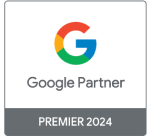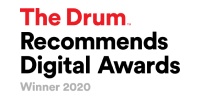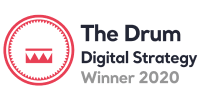The advertising spends for this year are yet to be released, but we do know that in the run-up to the 2015 General Election a combined £1.3m was spent on targeted Facebook advertising by political parties, accounting for about 23% of the total advertising budget, according to the Electoral Commission.
Following the last general election, Facebook claimed that the Conservative Party had been able to target ads at 80% of their users in areas with marginal seats. The Conservatives used Facebook to promote their videos, with Facebook stating that “The party’s videos were viewed 3.5 million times, while 86.9% of all ads served had social context — the all-important endorsement by a friend.” Indeed, some Labour party members believe that Facebook was the reason for their loss in the last general election.
Dominic Cummings, Leave campaign director during the Brexit referendum, claimed the group spent 98% of its £6.8m budget on digital advertising, publishing nearly a billion targeted digital adverts, many via Facebook. “You can say to Facebook, I would like to make sure that I can micro-target that fisherman in certain parts of the UK so that they are specifically hearing that if you vote to leave that you will be able to change the way that the regulations are set for the fishing industry,” Gerry Gunster, another political campaigner at Leave.EU, told BBC Panorama.
How Can Parties Target Me on Facebook?
Political parties are able to use Facebook Ad Manager to select and target very specific audiences for their posts. Parties are able to target people by location, age, gender, language, job titles, and their interests. The first five are pretty reliable, whereas interests are based on the pages you’ve “Liked” on Facebook.
Demographic Targeting
Facebook offers ad targeting based on demographic information. For example, political parties could target fisherman based on the job titles they have listed on Facebook:
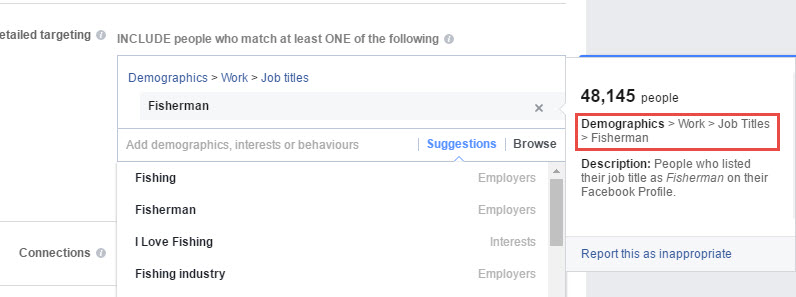
Targeting demographics such as a particular job title enables parties to create campaigns to target relevant issues within specific industries rather than simply broadcasting the same messages to the entire population.
Interest Targeting
Political parties are also be able to use Facebook to target users who display different interests.
As you can see below, political parties wishing to target fisherman could cast their net a little wider (excuse the pun) to target people interested in the topic of fisheries management.
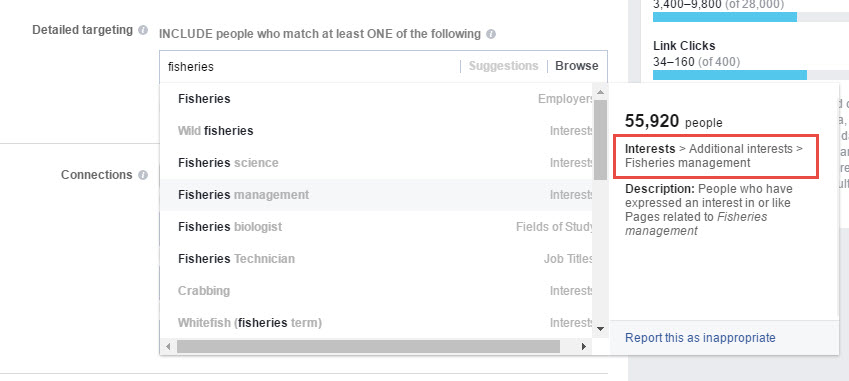
This method of targeting would allow a party to target an estimated 55,920 people in the UK versus the 48,000 people who had listed their job title as fisherman.
Behavioural Targeting
Facebook offers an extensive list of behavioural targeting options that political parties could utilise.
For example, Facebook utilise Experian data to offer political parties the ability to target users based on the value of their non-liquid assets (how much money they may have in the bank).

This targeting method may be particularly useful for parties such as the Conservatives, who could target high wealth individuals to campaign against Labour’s proposed tax increases for the high earners.
Targeting Facebook Page Connections
Facebook also allows political parties the ability to target people with connections to a specific page, app or event.

For example, political parties could target tailored ads at users who are connected to the Vote Leave Facebook page to highlight how they are the best choice for people wishing to leave the European Union.
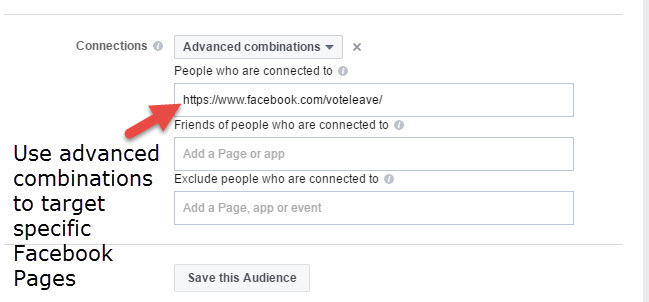
How Many People Can be Targeted?
There are 37.7 million active Facebook users in the UK so the reach of this platform offers a huge opportunity to political parties looking to promote their campaigns digitally.
Of course, the more specific the targeting methods applied to a campaign, the lower the estimated reach (number of people who will see the ads) and clicks.

How Does Facebook Know What I’m Interested in?
By clicking on your ad preferences, you will be able to see a list of things Facebook thinks that you like, which it then uses to target adverts towards you.
Facebook’s knowledge is based on the pages you like, the interests you share in your profile and the types of links you tend to share on the network.
You can remove interests from your ad preferences at any time via the ad preferences page:
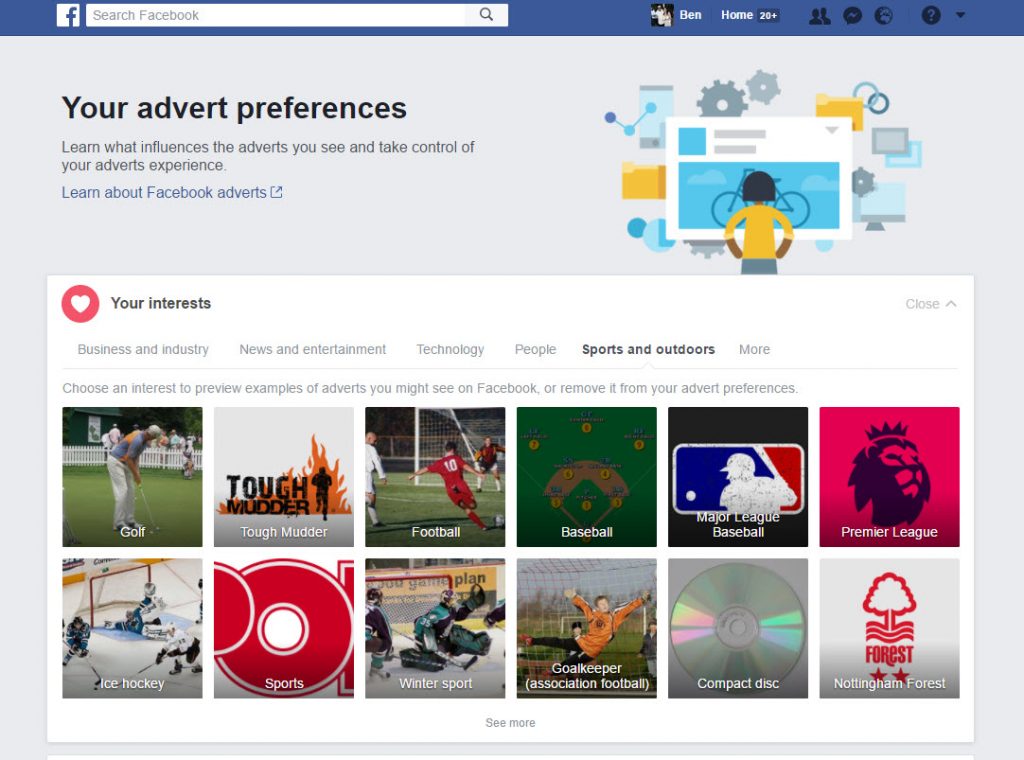
Which Ads Are Political Parties Running on Facebook?
Despite the large and growing sums being spent on Facebook advertising, what politicians are saying remains in large part unmonitored. Only Facebook (and individual users) can track the ads being shown and privacy obligations combined with commercial interests mean that information is not publicly accessible.
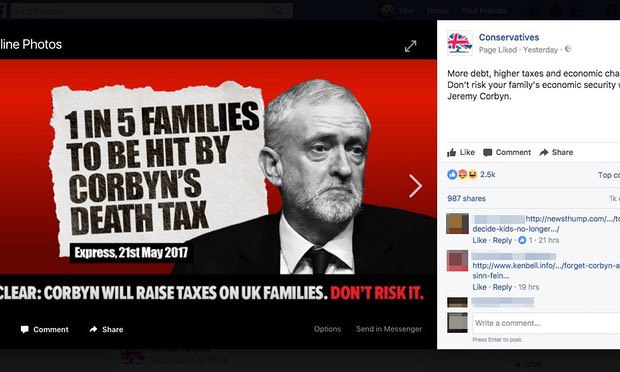
Movements such as Who Targets Me are attempting to collect data on who political parties are targeting across both Facebook and Twitter, while The Guardian are asking their readers to submit examples of political adverts they see on Facebook, in order to better understanding of the specific campaigns being run on the platform by various political parties.
Conclusion
The advanced targeting options available to political parties on Facebook means that it is becoming the battleground upon which elections are won and lost, offering quick and low cost communications at scale.
However, unlike billboards and TV advertising these ads remain largely unregulated. Facebook ads are invisible to all but their target audience. Controversial ads are tested and misinformation can be promoted with little chance of being regulated by the authorities who are unable to properly scrutinise them.



